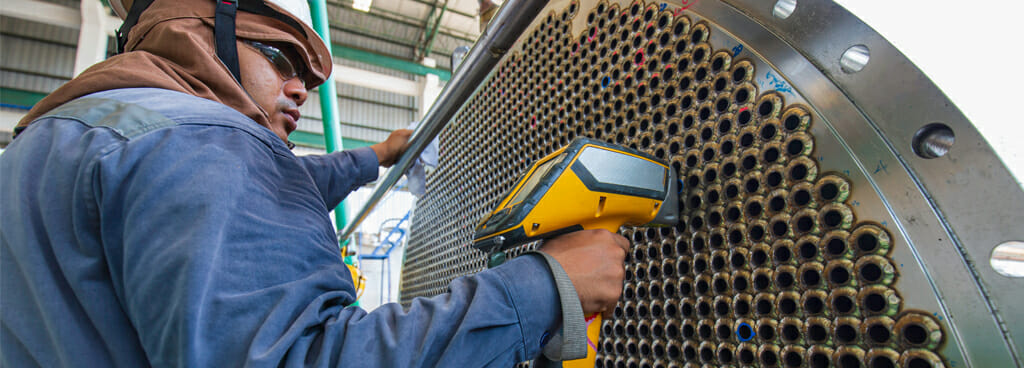- Home
- Services/IndustriesServicesindustries
- About Us
- LocationsStatesAccordion ContentAccordion ContentAccordion ContentAccordion Content
- Job Openings
- Quick Links
- ATS Family

Positive Material Identification (PMI) metal testing is a non-destructive testing (NDT) method utilized by ATS experts to verify the chemical compositions of various metals. Manufacturers seek PMI metal testing from trusted providers for quality control, safety compliance, and failure analysis applications. PMI allows chemists to ascertain whether parts suppliers produced critical components with the materials outlined in the product design specifications for their aesthetic and mechanical performance. PMI can find potentially mixed-up alloys or identify if the incorrect material has been used. If products are composed of unsuitable or inferior materials, they may fail and cause bodily harm or asset losses. Furthermore, PMI can ensure that materials conform to the correct standard and specification for both customers and industry. Improper material usage may result in:
- Thermal Damage
- Corrosion
- Fatigue Fractures
- Overload Failures
Depending on the clients’ needs and situation, various instrumentation and testing methods serve in determining metal composition. ATS experts employ several methods when conducting PM, including:
- X-Ray Fluorescence (XRF)
- Optical Emission Spectroscopy (OES)
- Inductively Coupled Plasma (ICP)
- Energy Dispersive Spectroscopy (SEM/EDS)
- X-Ray Diffraction (XRD)
- Wet Chemistry
- Ion Chromatography
Clients often request additional testing such as tensile strength test, yield strength test, elongation test, hardness, etc. – to identify material properties as well. The ATS lab can analyze and test a multitude of metals and alloys. Some common material types for PMI testing include:
- Alloy Steels
- Aluminum Alloys
- Stainless Steels
- Nickel Alloys
- Titanium Alloys
- Copper Alloys
- Cobalt
Quality Assurance at Applied Technical Services Laboratories
ATS laboratories maintain ISO 17025 accreditation through the American Association for Laboratory Accreditation (A2LA) to perform the work listed above to appropriate specifications. In addition. ATS is a Consumer Product Safety Commission (CPSC) accredited laboratory, identification number 1030. ATS also holds an ISO 9001 quality management certification. Feel free to contact Applied Technical Services with any questions you or your company may have regarding our PMI Metal testing capabilities.

Request Form
"*" indicates required fields
